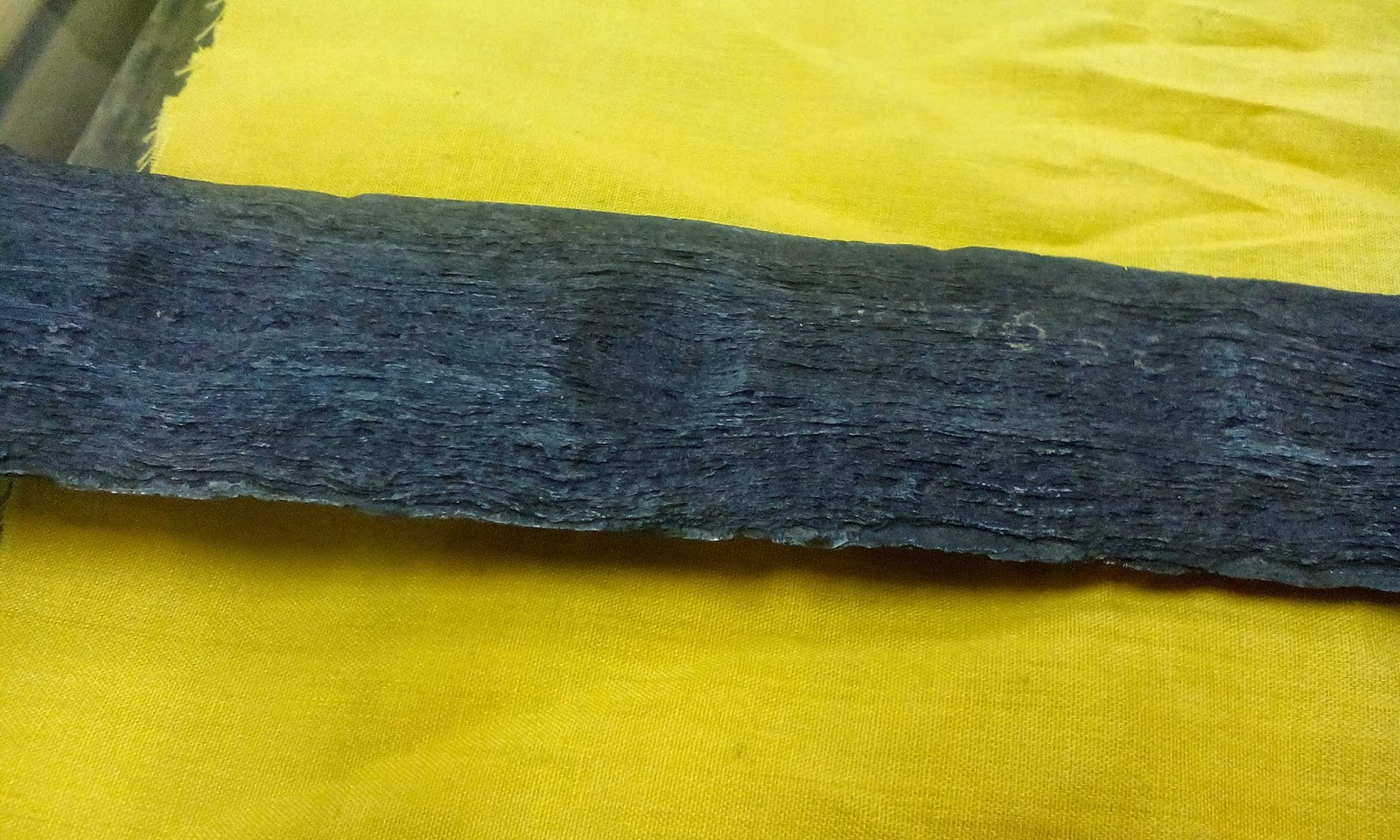Dagger Kris (Keris Picit)
Dagger Kris or Sajen Kris is a dagger
that is unique in the world of malay weapon diversity. dagger Keris is a dagger
made and owned by the priests hermits. Kris is made using a forged steel black rods
and thumb pinched when the iron is steal in unbearably hot. Kris is mostly made
in the Javanese Island during the Hindu Majapahit kingdom era. Pinch kris was
believed to have existed before the time of construction of the temple
Borobuddur as Prof. PA Van Der Lith have discovered this dagger is stored in
the temple.
 Those who managed to run Tapa Brahta
(hermitage perfect) will make a pinch kris as a sign of the sacred knowledge
that a person has after undergoing Tapa Brahta. Normally this upstream kris
there form the human figure sitting with her head bowed down. Javanese people
see there are two definitions of these upstream form. First up is called ‘Jawa Demam’
(Java fever) as the hilt like someone who is sick or has a fever while there is
also the concept that the human figure symbolizes the hermit itself, which has
undergone Tapa Brahta. There are various kinds of kris size depends on the
suitability pinch owners (artisan dagger) by the count date of birth (according
to the saka
year), place of meditation (meditation), finger span size, measure the diameter
of the head and many others. Kris has said as young carers and able to control
its owner mystical
Those who managed to run Tapa Brahta
(hermitage perfect) will make a pinch kris as a sign of the sacred knowledge
that a person has after undergoing Tapa Brahta. Normally this upstream kris
there form the human figure sitting with her head bowed down. Javanese people
see there are two definitions of these upstream form. First up is called ‘Jawa Demam’
(Java fever) as the hilt like someone who is sick or has a fever while there is
also the concept that the human figure symbolizes the hermit itself, which has
undergone Tapa Brahta. There are various kinds of kris size depends on the
suitability pinch owners (artisan dagger) by the count date of birth (according
to the saka
year), place of meditation (meditation), finger span size, measure the diameter
of the head and many others. Kris has said as young carers and able to control
its owner mystical- Establish a dagger blade pinch and divided the base of this we can see the kris ‘Kul Buntet’ or ‘Sumur Bandung’ (well of love)
- Kul Buntet is a round shape spiral occurs naturally when pressing a dagger masters
- Extruded thumb impression and the masters who impressed when making a dagger shows the height skill of kris maker
1
Reference
- http://1keris.blogspot.com/2012/10/kisah-misteri-dan-sejarah-keris.html#.VRj0MtKUdJ4
- http://antiquemaniacworld.blogspot.com/2012/11/identiti-kod-amw00572012-pspdkk-0778.html
- Dewan Bahasa dan Pusataka (2006) Kamus Peribumi Keris hlm 37, Dewan Bahasa dan Pustaka: Kuala Lumpur
- Bambang Harsrinuksmo (2004), Ensiklopedia Keris, Gramedia Pustaka Utama: Jakarta



